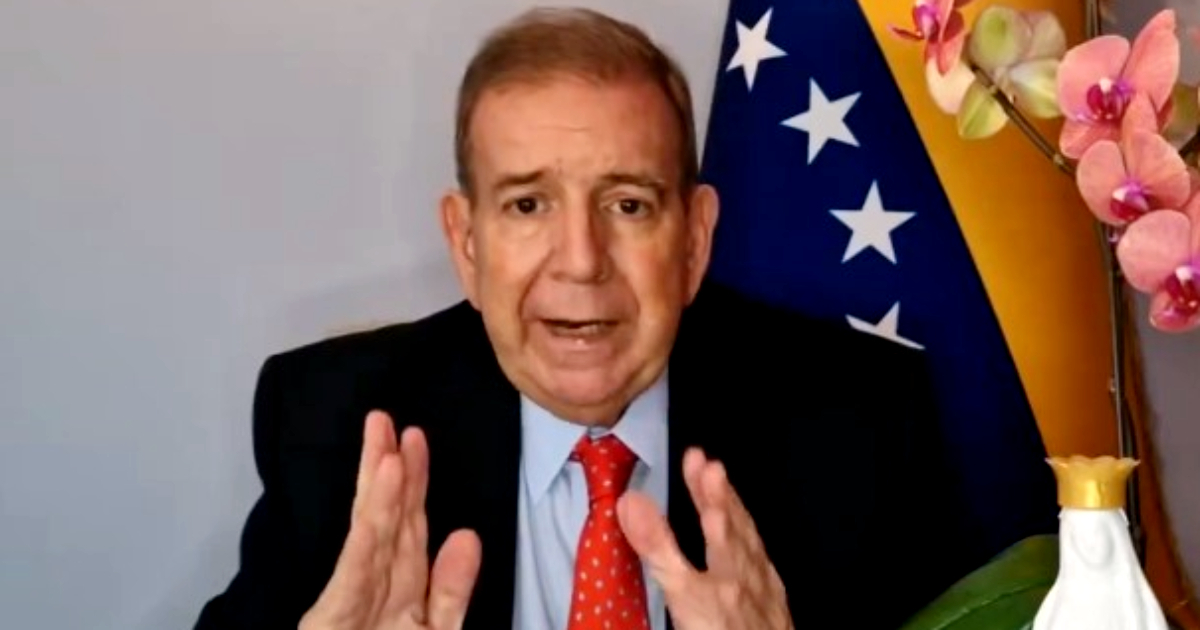
The government of the United States and the countries that make up the European Union (EU) condemned the arrest warrant issued by the regime of Nicolás Maduro against the elected president of Venezuela, Edmundo González Urrutia.
"Instead of acknowledging his electoral defeat and preparing for a peaceful transition in Venezuela, Maduro has now ordered the detention of the democratic leader who overwhelmingly defeated him at the polls," stated the U.S. Assistant Secretary of State for Western Hemisphere Affairs, Brian A. Nichols.
In his statement, published on his social media, the official emphasized that "Edmundo González has promoted national reconciliation" in Venezuela, an attitude that is diametrically opposed to that exhibited by the Maduro regime, which fuels polarization, violence, and confrontation among Venezuelans.
For all these reasons, Nichols stated that the United States joins “the growing list of international partners who condemn this unjustified arrest warrant.”
This Monday, the Prosecutor's Office of Venezuela issued an arrest warrant against González Urrutia, Maduro's rival in the elections on July 28, which were categorized by the opposition and many international actors as a fraud by Chavismo.
The request was made public on social media and circulated after González did not attend his third summons at the Public Ministry, which had been scheduled for last Friday, August 30, at 10:00 a.m. Caracas time.
The High Representative for Foreign Policy of the EU, Josep Borrell, also expressed his rejection of Maduro's repressive wave against the legitimate winner of the elections and the president elected by the Venezuelans.
"I categorically reject the arrest warrant against Edmundo González Urrutia and urge Venezuelan authorities to respect his freedom, integrity, and human rights. Enough with the repression and harassment of the opposition and civil society. The will of the Venezuelan people must be respected," remarked Borrell this Tuesday on the social network X.
Among the crimes listed by the Prosecutor's Office against González Urrutia are usurpation of functions, forgery of a public document, incitement to disobedience of the laws, conspiracy to commit a crime, and conspiracy.
The former candidate denies all the charges outlined in the document written by prosecutor Luis Ernesto Dueñez Reyes.
Regarding this accusation, opposition leader María Corina Machado spoke through X: "They have lost all sense of reality. By threatening the President-Elect, they only manage to unite us further and increase the support of Venezuelans and the world for Edmundo González. Serenity, courage, and firmness. We move forward."
After the publication of the electoral results on the website “Resultados con VZLA,” which belongs to the opposition Democratic Unitary Platform (PUD), the Attorney General attributes the illegal acts to them for publishing records of the elections that showed they were the winners when the National Electoral Council declared Nicolás Maduro the winner.
In mid-August, the United States government described the United Nations (UN) report that questioned the legitimacy of the electoral process in Venezuela as "very clear."
In a post on X, Nichols stated that "the UN report is very clear: Venezuelan electoral authorities did not comply with basic measures of transparency and integrity, did not follow national legal and regulatory provisions, and did not conduct post-electoral audits."
The preliminary UN report on the elections in Venezuela highlighted serious irregularities in the electoral process that concluded with Nicolás Maduro's proclamation as president.
Among the most prominent criticisms, the document emphasized that "the announcement of the outcome of an election without the publication of its details or the disclosure of tabulated results to the candidates is unprecedented in contemporary democratic elections."
Days later, EU ministers agreed not to recognize Maduro's victory. While the chancellors did not reach a consensus to acknowledge the opposition's win, they did agree that they have no evidence to believe that Maduro won the elections.
"The Council decided that Maduro does not have democratic legitimacy as president. He will continue to be a de facto president, yes, de facto," Borrell emphasized.
"Since there are no records and no verification, and we fear that there will never be, we cannot accept Maduro's legitimacy as an elected president," he assured.
What do you think?
COMMENTFiled under: